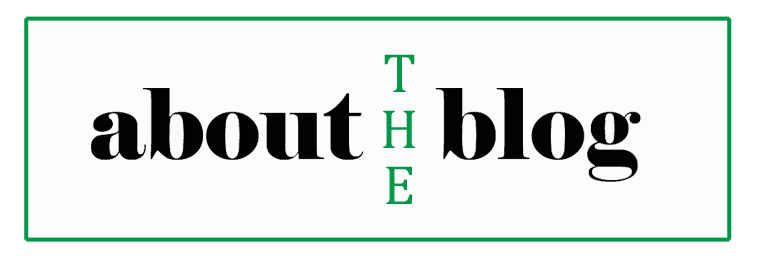
What is Debt Collection and How Does it Work?
In an ideal world, people will honor all their financial obligations as and when they are due. But let’s face it: life is unpredictable, and sometimes things get in the way. Sometimes, juggling between medical bills, student loans, and other obligations is not quite a smooth ride. And before you know it, you may find yourself drowning in a sea of overdue notices and final warnings.
It’s times like these that debt collection agencies enter the limelight. These are the people creditors call when they’ve grown tired of the ‘Please pay your bill’ routine. This time around, you are essentially saying, “Alright, we tried asking nicely. Time to bring in the big guns.”
Here’s the thing, though: debt collection isn’t just about big fellows in black suits paying debtors a visit in their homes. Rather, debt collection is an entire industry on its own. It’s also much more than just tracking down debtors or making awkward phone calls. There are laws guiding every action and different types of debt. Plus, you have human emotions to deal with. Most importantly, though, treating people with dignity while on the job is non-negotiable.
That’s why today I’m dedicating this post to talk about what debt collection is and other information that you should know about!
What is Debt Collection: Everything You Need to Know
Debt collection refers to the process of pursuing payments for debts owed by individuals or businesses. This is somewhat like being the financial detective for the company. Collection agencies are the bodies responsible for carrying out such a challenging task.
However, it must be pointed out that debt collection is not the Wild West. The law that governs how due debts can be collected is very well enforced. For instance, federal laws such as the Fair Debt Collection Practices Act (FDCPA), Federal Trade Commission (FTC), and other Federal Fair Debt Collection laws all spell out the dos and don’ts for every involved party. They prevent the use of any abusive, unfair, or deceptive practices. For instance, if a debtor files a complaint that has substance, these bodies can direct collection agencies to stop contacting the debtors.
Contrary to what some might think, the goal of debt collection isn’t to torment people’s lives. Rather, debt collection agencies are there to find a satisfactory resolution for the creditor and the debtor. Sometimes it means negotiating the payment plan schedule. At other times, debt collection negotiations are needed to reach a settlement agreement. That means recovering a lesser amount of the debt. Some creditors even sell their debt to collection agencies at a lesser price as well.
 How Does Debt Collection Work?
How Does Debt Collection Work?
Here’s a step-by-step guide on how debt collection works:
Step 1: The Friendly Reminder
This is where the original creditor gently reminds the debtor of his long-overdue obligation. It usually begins with the former sending the latter a courteous letter, e-mail, or even a phone call. The creditor is essentially saying, “Hey, I noticed you forgot to pay. No biggie, it happens to the best of us!”
This stage is all about offering the debtor an opportunity to pay before things get serious. The creditor may also offer the option to pay in installments or even give a small discount if it’s settled quickly.
Step 2: The Internal Collection Efforts
If those friendly reminders do not work, things start to get a bit more persistent. The creditor’s internal collection department takes over in an attempt to collect unpaid debt. Their actions are often a far cry from the initial friendly approach. They are here to make debtors sweat.
Defaulters can look forward to more phone calls and letters with a strict tone. The department may even drop some not-so-subtle hints of what will happen if debtors fail to pay up on time.
Step 3: Third-Party Collectors
If the selected internal team fails to deliver, then it will be time to hire a professional team. This is where third-party collection agencies come into play. It is as if the creditor is saying, “Alright, we tried to play nice. Now meet our ‘friends’.”
These agencies are experts at getting people to pay up. They have a series of tricks up their sleeves and are not shy about using them (both legal and non- legal means of collection). Debtors should also prepare for more phone calls and letters that appear very official. However, debtors are allowed to dispute the debt within 30 days of receiving the letters, especially if the statute of limitations has passed.
Defaulters may equally get some voicemail messages that will make them consider using the ‘do-not-disturb’ service. Another benefit of using these third-party collectors is that they are paid on a commission basis. Therefore, they’ll work extra hard to ensure the debtors pay up.
Step 4: Credit Report Impact
It’s worth mentioning that while all this is happening, the debtor’s credit score may take a serious hit once credit reporting companies are involved. Late payments and collections can show up on your credit report. This information could be available to future lenders, landlords, and possibly even potential employers.
Consequently, such occurrences can limit debtor’s chances of getting loans, credit cards, or even renting an apartment. Worse still, this can go on for years. It’s the debt collection world’s way of saying, “Actions have consequences.”
Step 5: Legal Action (The Last Resort)
In some cases, some creditors or collection agencies might resort to litigation as a means of recovering the debts. This is the ‘‘we mean business’’ phase of debt recovery. Defaulters might get served with a lawsuit, which is definitely no fun. If the creditor wins in court, they could get a favorable court order to garnish the debtor’s wages or put liens on their properties.
This stage is quite rare and is usually reserved for larger debts. Many collectors usually don’t want to end up in a court of law if they can help it.
Debt collection is crucial for any creditor to recover outstanding invoices and debt.
Staying up-to-date with the latest trends and practices in debt collection is a must to stay ahead of the curve. One great platform to achieve this and more is Connection2Collections.
Joining Connection2Collections is your ticket to the big leagues of debt collection. It doesn’t matter whether you sign up as an individual or a company. What’s certain is that you’ll be joining a community where elites of the debt collection industry hang out.
You can look forward to rubbing minds with the giants in the industry. These people have seen it all, done it all, and are more than willing to share with you the real secrets of debt collection.
Networking opportunities are another major reason why people join this community. You may just meet your kindred spirit in terms of debt collection someone who gets as excited about recovery rates as you do. Such individuals may even be the key to unlocking your career dreams. So, what are you waiting for? See you there!



